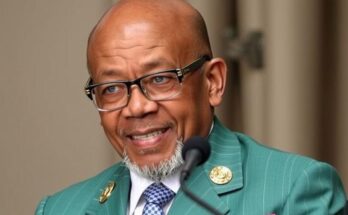The 2024 election is highlighting a political divide among Latino families in Arizona, particularly exemplified by Miguel Gomez, a 21-year-old who is considering supporting Donald Trump against his parents’ Democratic values. This clash underscores a broader shift in Latino voting patterns and the impact of political polarization on familial relationships.
In Arizona, a state known for its diverse Latino community, the impending 2024 presidential election has exposed deep chasms within families and friendships, particularly among those with ties to the Democratic Party. A poignant example is that of Miguel Gomez, a 21-year-old voter who, despite a childhood steeped in Democratic values, is now considering supporting former President Donald Trump. Raised in a middle-class household in Phoenix, Arizona, Mr. Gomez reflects a shifting political landscape as he grapples with his identity as a Latino voter. His parents, staunch opponents of Trump, view their electoral choices as reflective of cultural and familial identity rather than mere economic considerations. The division among Latino voters in Arizona is increasingly evident as traditional allegiances begin to fracture. In a demographic where approximately 25% of voters identify as Latino, the contrasting views within families highlight the larger political rift in the nation. Miguel’s father articulates this disconnect by asserting that their political stance is rooted in cultural upbringing, stating, “We grew up in our culture… Him, not so much.” As the younger Gomez anticipates his first presidential vote, he is faced with the weight of familial expectations against his evolving political beliefs. This generational clash illustrates the broader implications of political polarization in America, underscoring how the 2024 election may further affect familial dynamics across Latino communities in Arizona and beyond. The younger Gomez’s struggle is emblematic of a national conversation regarding identity, loyalty, and political affiliation as many Latino voters navigate their place in an increasingly contentious political environment.
The political landscape among Latino voters in the U.S., particularly in swing states like Arizona, has been undergoing significant transformation. Historically, Latino voters have leaned Democratic, influenced by issues like immigration rights and social equity. However, recent trends indicate that some Latino demographics are shifting toward Republican candidates, especially among younger voters who resonate with conservative perspectives on matters like economic opportunities and personal identity. This evolution poses challenges for families traditionally aligned with the Democratic Party, leading to conflicts and debates within households as younger members assert their political beliefs.
The 2024 election is set to be a critical juncture for Latino voters in Arizona, revealing deep generational and ideological rifts. Cases like that of Miguel Gomez exemplify how political allegiances can change, reflecting broader national trends. As families navigate these complex dynamics, the implications of these divisions for the electoral landscape may be profound and lasting. Ultimately, the upcoming election may not only test political loyalties but also familial bonds within the Latino community, as individual perspectives challenge collective identities.
Original Source: www.nytimes.com




